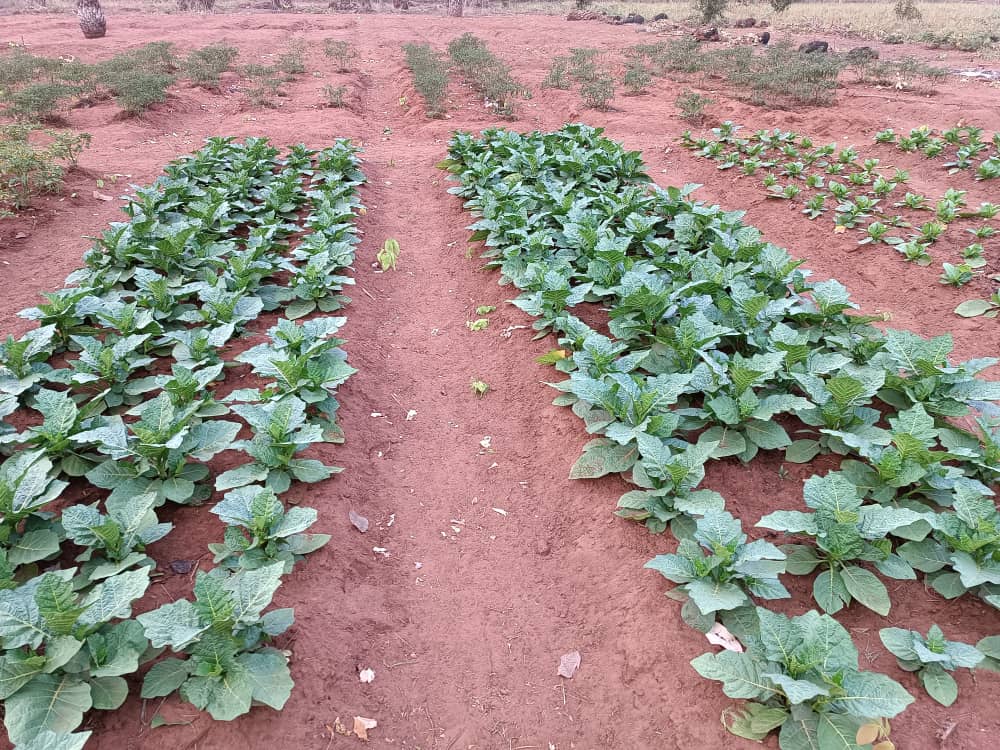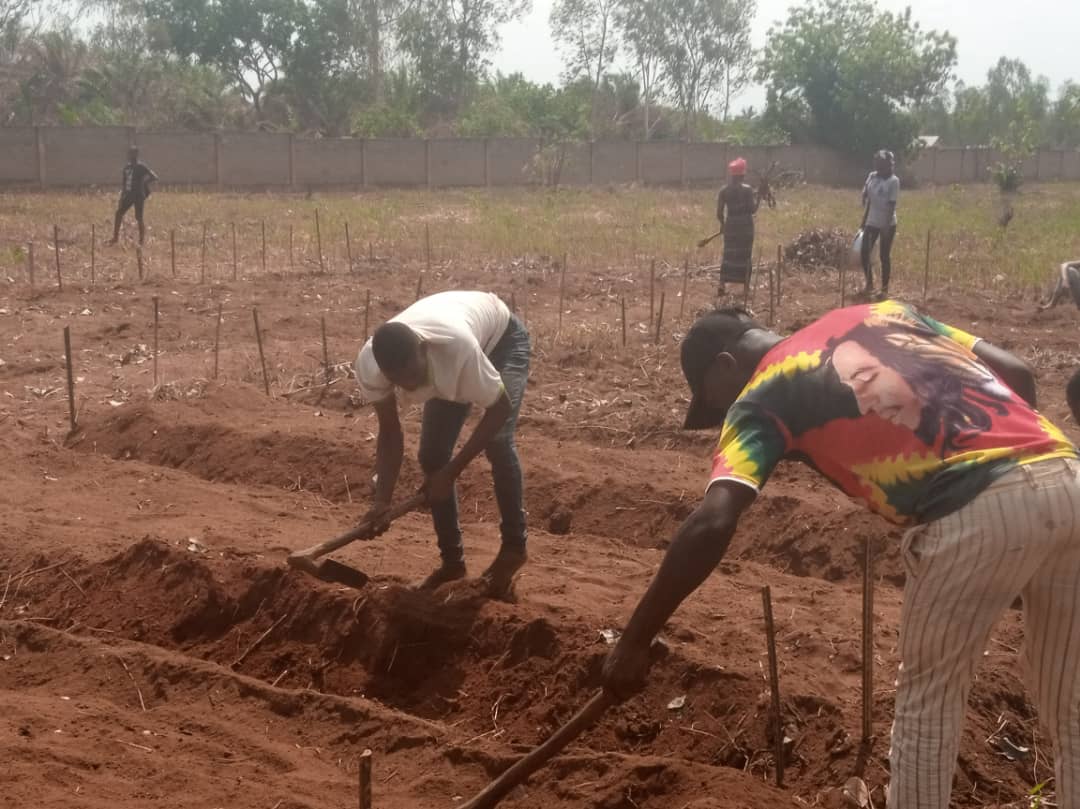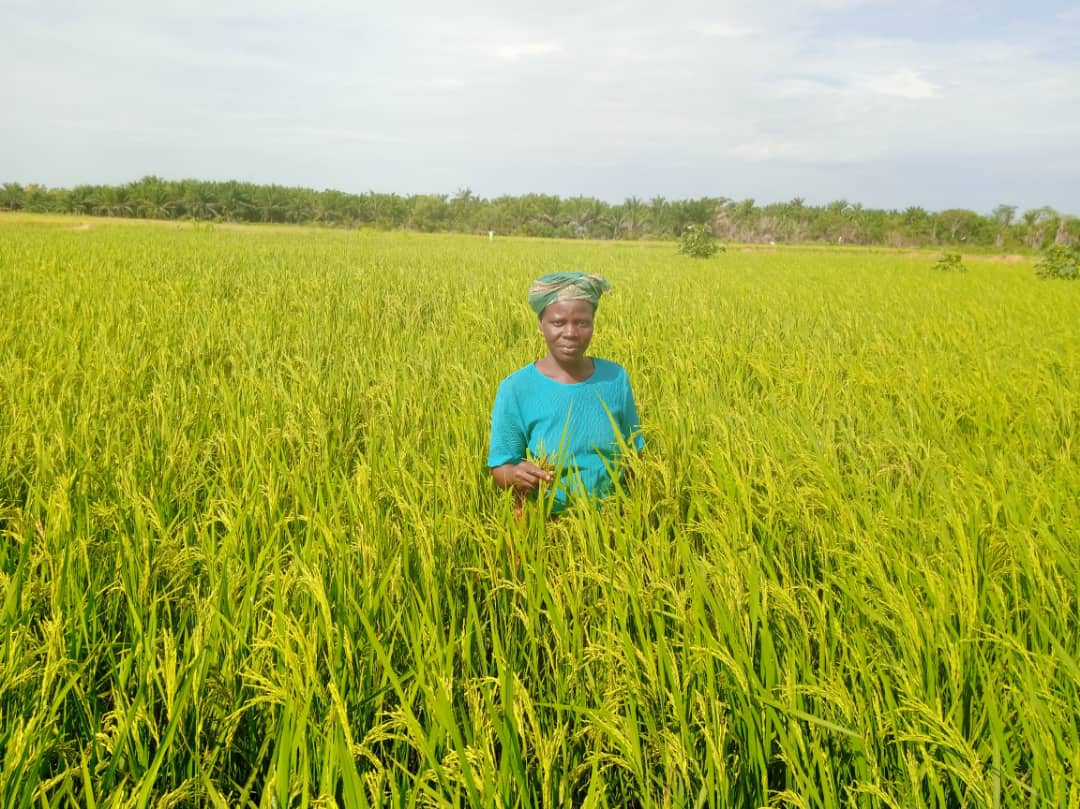How One Young Entrepreneur Uses Compost to Tackle Climate Change in Benin: An Interview with INNOV Tech’s CEO
INNOV Tech produces organic fertilizers and compost to improve soil fertility and increase crop production in Benin. Led by Bienvenu Ezin, this enterprise is one of 15 winners of the 2021 African Youth Adaptation (YouthADAPT) Solutions Challenge. In an interview with GCA, Bienvenu relates how his enterprise helps Benin tackle climate change, and how YouthADAPT is helping him expand his innovative solution.
T
he people of Benin, on Africa’s Atlantic coast, are already experiencing the devastating impacts of climate change. Over the last 40 years, Benin has been struck by extreme weather events that have taken lives and livelihoods, and damaged homes and infrastructure. The historic flood of 2010 affected 680,000 people all over the country, and massive flooding in 2019 left around US$85 million in damage.
Climate projections in Benin include desertification, and increased periods of drought and flooding, which could seriously hinder agricultural production and affect food security.
This is where INNOV Tech Benin comes in. INNOV Tech, an agricultural company that promotes sustainable and climate-resilient farming, is one of 15 winning enterprises of the African Youth Adaptation (YouthADAPT) Solutions Challenge, an annual competition organized by the Global Center on Adaptation (GCA), the African Development Bank (AfDB), and Climate Investment Funds (CIF).
INNOV Tech supplies organic fertilizers, natural pesticides and monitoring support advice to farmers in Benin so that they can replace inorganic practices, improve the quality of agricultural soils, and retain water through compost.
Compost improves the water-holding capacity and filtration of soil to better withstand drought, heat waves and heavy rains. By increasing soil health and fertility, compost can also lead to better crop yields, greater food security, and increased resilience to weather extremes.
In aIn interview with GCA, INNOV Tech CEO and founder Bienvenu Ezin shares the challenges and rewards of running his business, and how winning the YouthADAPT challenge has helped him expand his climate-friendly solution, popularizing the use of compost among farmers in Benin.

How do you and your community, especially young people, face climate-related challenges in your daily lives?
In Benin, climate change causes significant damage in the agricultural sector. There are many irregularities in the seasons and soil infertility, which hinders agricultural activities and crop development. This favors the rural exodus of young people to the cities or abroad in search of better conditions. This situation explains the urgency of adaptation measures for more than 60 percent of the country’s population who live in rural areas and depend on agriculture and resources such as water and land.
What solution did you find to these issues and what led you to start your business?
The solution we found is composting organic waste. Unused organic waste from households and crops is turned into compost to improve the structure of agricultural soils, making them more fertile for crops in the long term. The application of compost in the soil has the advantage of retaining water for crops and reducing the inappropriate use of chemical fertilizers that pollute the environment and human health. We also do market gardening as a complement to composting for healthy and good quality vegetable production.
The cost of chemical fertilizers rises every year and since the agricultural soils are already poor, farmers are forced to use a lot of fertilizer. At the end of the year, their yield is not profitable. The same practices are repeated every year and soil quality is getting worse, which makes farmers vulnerable to the effects of climate change. Faced with this situation, we created our company to produce compost that farmers will use to gradually restore soil fertility.

What changes have you observed as a result of your solution? How does your solution contribute to community and climate adaptation?
Climate change is everyone’s business, and each actor must play his or her part to meet the major challenges. We note that since the implementation of our innovation, one out of five farmers use compost in the community. Much remains to be done but this gradual adoption shows the awareness of the communities about climate. Over time, with awareness and communication actions and field school visits, the adoption rate could evolve. In the past, farmers only used chemical fertilizers that caused soil infertility.
Given that the extreme events of climate change are drought, flooding, and agricultural difficulties, the use of compost makes agriculture resilient in addition to being an organic fertilizer with a lasting effect on soil.
What are some of the challenges and obstacles you have faced in trying to implement your solution? How has YouthADAPT helped you overcome these barriers?
Not enough farmers have adopted this innovation because compost is not a fertilizer that has an immediate effect in the soil and on crops. There are also difficulties in accessing land for the extension of market gardening production. We have insufficient means – material, human and financial – to expand our activities. And the community lacks knowledge on climate issues and mitigation and adaptation measures.
The agricultural sector is one of the most threatened by global warming, so it is urgent to seek programs dedicated to climate and its adaptation for an effective and combined action to meet major challenges.
The YouthADAPT program gave us the financial resources in the form of a grant to overcome some of the barriers. The mentoring program gives us the tools and knowledge to grow our businesses by creating value and wealth from climate adaptation solutions.

How did you use the resources received from the program? How have you personally benefited from the YouthADAPT mentoring program?
The percentage of the grant received so far has been used to acquire composting equipment and to expand the field of application of compost for market gardening.
The YouthADAPT mentorship program is a program that connects young innovators in the program with experts in the climate field. Personally, I enrich my knowledge in climate adaptation, I capitalize on successful adaptation experiences or models elsewhere, and I participate in a co-construction of an ecosystem of young people committed to addressing climate-related challenges in Africa.
What are the next steps for you? What are your hopes and ambitions?
Our next steps involve expanding the composting platform and capturing other markets. We would like to expand the business into other communities and locations, acquiring the means to distribute compost and other products.
We would like to increase our production capacity in an environment favorable to the promotion of organic fertilizers for a sustainable and harmonious development of agricultural sectors. We would like organic fertilizers to occupy a place of choice in agricultural development policies and that this be prioritized over other synthetic fertilizers. The place of organic fertilizers is critical to safeguarding the environment and the quality of food.

What advice would you give to other young African entrepreneurs?
I would say that we are already experiencing the effects of global warming and its consequences. The continent’s young entrepreneurs must know that climate change is everyone’s business, without exception. In all entrepreneurial actions, young people must prioritize actions that contribute to adaptation and the reduction of greenhouse gases in the atmosphere.
The YouthADAPT Challenge, part of the Africa Adaptation Acceleration Program (AAAP), aims to empower young African entrepreneurs by providing funding of up to $100,000 along with a one-year accelerator program that includes capacity building training, mentorship, and coaching.
The AAAP is an Africa-owned, Africa-led initiative launched by GCA and the AfDB with the support of the African Union and African leaders. The AAAP will mobilize $25 billion for adaptation investments in Africa within the next five years. GCA’s AAAP Upstream Financing Facility is mainstreaming the best climate adaptation science and solutions into programs across Africa. In its 24 months of operation, the Upstream Financing Facility has influenced more than $5.2 billion in downstream investments with Multilateral Development Banks in 27 African nations.
The ideas presented in this article aim to inspire adaptation action – they are the views of the author and do not necessarily reflect those of the Global Center on Adaptation.